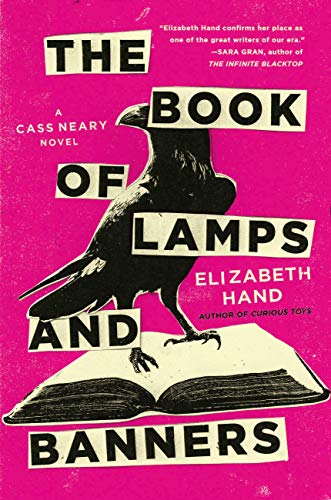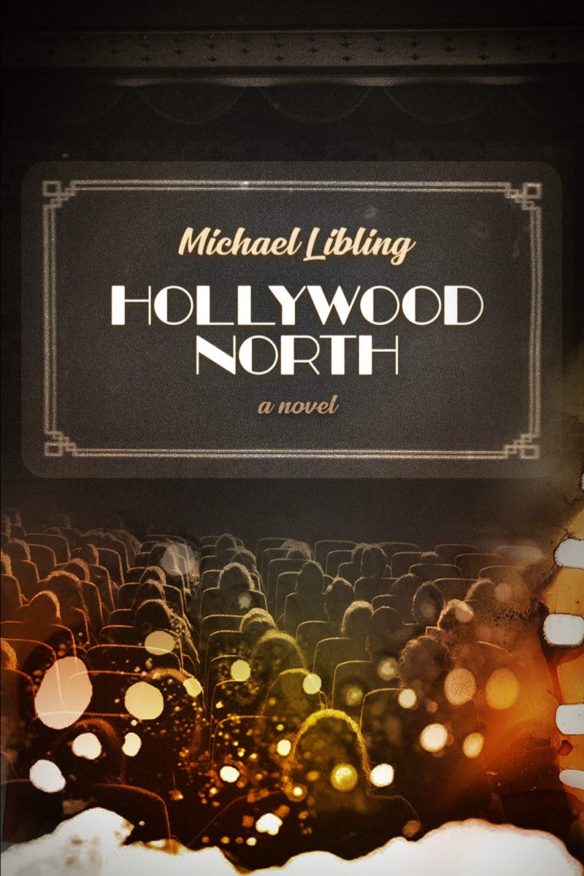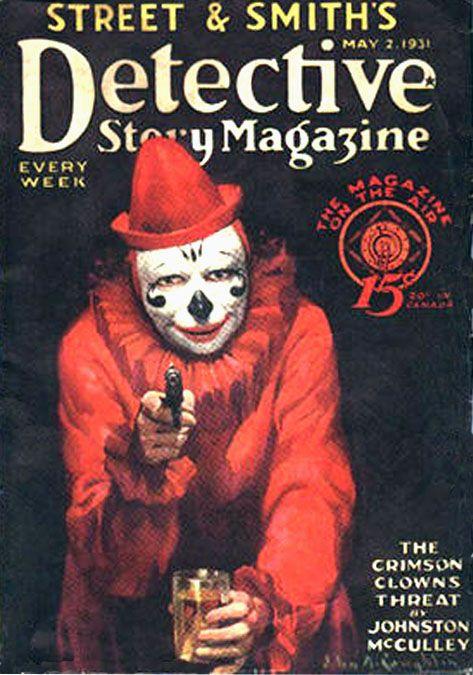(1) GALACTIC WALKTHROUGH. Journalists get a virtual tour as “Virgin Galactic Unveils Comfy Cabin for Jet-Setting to the Edge of Space” reports the New York Times.

The inside of Virgin Galactic’s space plane is like a space-age executive jet.
The seats recline to absorb the forces of acceleration toward space. Mood lighting shifts during each phase of the flight. Twelve windows — two for each of the six passengers, who have paid hundreds of thousands of dollars each for a seat — provide an impressive view of Earth and the darkness of space. Sixteen cameras will capture you floating. And the back of the cabin includes a big circular mirror so that you can watch yourself enjoying a few minutes escaping the effects of gravity.
Virgin Galactic will be offering short up-and-down trips to the edge of space, essentially like giant roller coaster rides with better views, in its space plane, SpaceShipTwo.
But how can the company unveil the fancy new interior of its space plane in the middle of a global pandemic when journalists are not able to gather for a fancy media event?
Modern technology provided an imaginative solution. Virgin Galactic sent Oculus virtual reality headsets as loaners to journalists so that they could chat with the designers of the cabin while walking through a computer-generated version of it — an experience of almost being there while being nowhere near there….
(2) REASONS FOR SITE SELECTION WRITE-INS. Yeah. No.
(3) DRAGON AWARDS. Almost there – Dragon Awards.
Dragon Awards dates
Ballots for the awards will be released in the first week of August.
Voting registration closes on 9/4/20.
Voting closes on 9/5/20.
(3) JUST LIBRARIANS. “Internet Archive Answers Publishers’ Copyright Lawsuit” – Publishers Weekly distills the defendant’s legal reply to the lawsuit.
In a July 28 filing, the Internet Archive answered a copyright infringement lawsuit filed by four major publishers, asserting that its long-running book scanning and lending program is designed to fulfill the role of a traditional library in the digital age, and is protected by fair use.
“The Internet Archive does what libraries have always done: buy, collect, preserve, and share our common culture,” reads the IA’s preliminary statement to its answer, contending that its collection of roughly 1.3 million scans of mostly 20th century books, many of which are out of print, is a good faith and legal effort to “mirror traditional library lending online” via a process called Controlled Digital Lending (CDL).
“Contrary to the publishers’ accusations, the Internet Archive, and the hundreds of libraries and archives that support it, are not pirates or thieves,” the filing states. “They are librarians, striving to serve their patrons online just as they have done for centuries in the brick-and-mortar world. Copyright law does not stand in the way of libraries’ right to lend, and patrons’ right to borrow, the books that libraries own.”
The IA’s answer comes in response to a June 1 copyright infringement lawsuit filed in the Southern District of New York by Hachette, HarperCollins, John Wiley & Sons, and Penguin Random House, and coordinated by the Association of American Publishers….
(4) KGB READINGS. Fantastic Fiction at KGB reading series hosts Ellen Datlow and Matthew Kressel present Elizabeth Hand and Michael Libling in a YouTube livestreamed event on Wednesday, August 19 at 7 p.m. Eastern.
Elizabeth Hand

Elizabeth Hand is the author of sixteen multiple-award-winning novels and collections of short fiction including Curious Toys, Wylding Hall, and Generation Loss. The Book of Lamps and Banners, her fourth noir novel featuring punk provocateur and photographer Cass Neary, will be out this year. She divides her time between the Maine coast and North London.
Michael Libling

Michael Libling is a World Fantasy Award-nominated author whose short fiction has appeared in The Magazine of Fantasy & Science Fiction, Asimov’s Science Fiction, Realms of Fantasy, Amazing Stories, and many others. His debut novel, Hollywood North: A Novel in Six Reels, was published in 2019. Michael is the father of three daughters and lives on Montreal’s West Island with his wife, Pat, and a big black dog named Piper.
(5) CEASELESS GIVEAWAY. Beneath Ceaseless Skies is running a giveaway of Marie Brennan’s upcoming book Driftwood. The rules and other details can be found here: “First Marie Brennan Driftwood Book Giveaway”
To enter the giveaway that’s in this very post, comment on this post (here) and tell us what your favorite Marie Brennan short story is. Whether a Driftwood story or one of her many other stories; whether published in BCS or elsewhere.
Your comment will enter you in a random drawing for the signed copy of Driftwood. This giveaway ends Wed. Aug. 12. (Full Rules are here, at the end of this post.)
(6) MEDIA BIRTHDAY.
- July 31, 1930 — The Shadow first made his appearance as the narrator of the Detective Story Hour radio program which was intended to boost sales of Street & Smith’s monthly Detective Story Magazine. Harry Engman Charlot, a scriptwriter for the Detective Story Hour was responsible for the name. The Shadow would be developed into the character that we know a year later by Walter B. Gibson. (CE)

(7) TODAY’S BIRTHDAYS.
[Compiled by Cat Eldridge and John Hertz.]
- Born July 31, 1807 – Clara de Chatelain. In her Child’s Own Book of Fairy Tales, two more, retold fifty classics and wrote a hundred forty. The Sedan Chair and Sir Wilfred’s Seven Flights comprises two for adults. Translated four hundred songs for music publishers e.g. Schott; tr. Cammarano’s Italian lyrics for Donizetti’s Lucia di Lammermoor (whose protagonist is Scots). Wrote widely under “Leopold Wray” and other names. Friend of Victor Hugo. (Died 1876) [JH]
- Born July 31, 1879 – Kenneth Morris. Ranked by Le Guin with Eddison, MacDonald, Tolkien as master 20th Century fantasy prose stylist. Three novels (this one published posthumously), forty shorter stories, sometimes under the Welsh form of his name Cenydd Morus. (Died 1937) [JH]
- Born July 31, 1924 – Waldemar Kumming. Leading German fan for decades. Joined SFCD (Science Fiction Club Deutschland; note combined English-German name) 1956, chair 1962-1968. Fan Guest of Honour at Seacon ’84 – combining Eastercon 35 (U.K. nat’l con) + Eurocon 8. Published Munich_Round_Up with Walter Reinicke until WR died 1981, then alone until 2014; I was glad to contribute. Kurd_Laßwitz_Special Award for MRU and life achievement. Big Heart (our highest service award). Wolf von Witting’s appreciation here. (Died 2017) [JH]
- Born July 31, 1928 – Allen Lang, 92. One novel (Wild and Outside, US baseball shortstop sent to civilize the planet Melon), a score of shorter stories translated into Dutch, French, German, Italian, most recently (“Fuel Me Once”) in the Jul-Aug 20 Analog. [JH]
- Born July 31, 1929 – Lynne Reid Banks, 91. A dozen novels for us, forty other books including The L-Shaped Room. Children’s fantasy The Indian in the Cupboard, ten million copies sold; four sequels. Eight years teaching on a kibbutz (“not a Jew, but Jew-ish”). Barrie Award. “Writing for a living is a great life, if you don’t weaken.” Website here. [JH]
- Born July 31, 1932 — Ted Cassidy. He’s best known for the role of Lurch on The Addams Family in the mid-1960s. if you’ve got a good ear, you’ll recall that he narrated The Incredible Hulk series. And he played the part of the android Ruk in the episode “What Are Little Girls Made Of?” on Trek, and provided the voices of the more strident version of Balok in the episode “The Corbomite Maneuver” and the Gorn in the episode “Arena”. In The Man from U.N.C.L.E. episode “The Napoleon’s Tomb Affair”, he was Edgar, who kidnapped, tortured, and repeatedly attempted to kill Napoleon and Illya. (Died 1979.) (CE)
- Born July 31, 1935 –Dave Van Arnam. Seven novels (some with Ted White), translated into Dutch, Japanese, Spanish. Two anthologies (with Kris Neville, William Tenn). “How I Learned to Love Fandom” in NyCon 3 Program & Memory Book (25th Worldcon; DVA was co-chair). Co-founded, or something, APA-F. (Died 2002) [JH]
- Born July 31, 1951 — Jo Bannister, 69. Though best-known as a most excellent British crime fiction novelist, she has three SF novels to her credit, all written in the early Eighties — The Matrix, The Winter Plain and A Cactus Garden. ISFDB lists one short story by her as genre, “Howler”, but I wasn’t at all aware that Ellery Queen’s Mystery Magazine printed genre fiction which is where it appeared first. (CE)
- Born July 31, 1956 — Michael Biehn, 64. Best-known in genre circles as Sgt. Kyle Reese in The Terminator and Terminator 2: Judgment Day, Cpl. Dwayne Hicks in Aliens and Lt. Coffey in The Abyss. He was also The Sandman in a single episode of Logan’s Run. Though not even genre adjacent, he was Johnny Ringo in the magnitude Tombstone film. (CE)
- Born July 31, 1959 — Kim Newman, 61. Though best-known For his Anno Dracula series, I’d like to single him out for his early work, Nightmare Movies: A critical history of the horror film, 1968–88, a very serious history of horror films. It was followed up with the equally great Wild West Movies: Or How the West Was Found, Won, Lost, Lied About, Filmed and Forgotten. He’s also a prolific genre writer and his first published novel, The Night Mayor, sounds very intriguing. (CE)
- Born July 31, 1962 — Wesley Snipes, 58. The first actor to be Blade in the Blade film franchise where I thought he made the perfect Blade. (There’s a new Blade actor though their name escapes right now.) I also like him as Simon Phoenix in Demolition Man. (CE)
- Born July 31, 1976 — John Joseph Adams, 44. Anthologist of whom I’m very fond of The Improbable Adventures of Sherlock Holmes and Dead Man’s Hand: An Anthology of the Weird West which he did. He was the Assistant Editor at The Magazine of Fantasy & Science Fiction for nearly a decade, and he’s been editing both Lightspeed and Nightmare Magazine since the early part of this decade. (CE)
- Born July 31, 1979 – B.J. Novak, 41. Author, actor, writer-director. Fifteen short stories ours in The New Yorker, Zoetrope, and collection One More Thing (it has 64 total; six weeks a NY Times Hardcover Fiction Best-Seller). For children The Book With No Pictures (also a best-seller; “a lot of the other one-star reviews are from people who object to speaking of a hippo named Boo Boo Butt”). [JH]
(8) COMICS SECTION.
- Shoe needs help finding a dystopian book.
(9) COMING TO A MT. TBR NEAR YOU. Andrew Liptak has released his book list for August. (Formerly published by Polygon.)
(10) NEW HONOR FOR HOPPER. In line with the Rosalind Franklin Mars rover, Google announces “The Grace Hopper subsea cable, linking the U.S., U.K. and Spain”. Press release.
Today, 98% of international internet traffic is ferried around the world by subsea cables. A vast underwater network of cables crisscrossing the ocean makes it possible to share, search, send, and receive information around the world at the speed of light. In today’s day and age, as the ways that we work, play and connect are becoming increasingly digital, reliable connectivity is more important than ever before. That’s why we’re excited to announce a new subsea cable—Grace Hopper—which will run between the United States, the United Kingdom and Spain, providing better resilience for the network that underpins Google’s consumer and enterprise products.
Grace Hopper joins our other private subsea cables, Curie, Dunant and Equiano to connect far-flung continents along the ocean floor. Private subsea cables allow us to plan effectively for the future capacity needs of our customers and users around the world, and add a layer of security beyond what’s available over the public internet.
Once commissioned, the Grace Hopper cable will be one of the first new cables to connect the U.S. and U.K. since 2003, increasing capacity on this busy global crossroads and powering Google services like Meet, Gmail and Google Cloud. It also marks our first investment in a private subsea cable route to the U.K., and our first-ever route to Spain. The Spanish landing point will more tightly integrate the upcoming Google Cloud region in Madrid into our global infrastructure. The Grace Hopper cable will be equipped with 16 fiber pairs (32 fibers), a significant upgrade to the internet infrastructure connecting the U.S. with Europe. A contract to build the cable was signed earlier this year with Eatontown, N.J.-based subsea cable provider, SubCom, and the project is expected to be completed in 2022.
(11) MOVIE AMBIENCE. [Item by algorithm connoisseur Martin Morse Wooster.] The YouTube algorithm introduced me to a website called Ambient Worlds, whose creator has come up with Harry Potter Movie Ambience: “Hogsmeade Relaxing Music, Crowd Noise And Snow”, which is an hour of music from the Harry Potter movies mixed into background music for whatever you happen to be doing (in my case, writing, because I write with music or baseball in the background). I’ve never heard of such a thing.
Ambient Worlds has a Lord of the Rings background music video that’s three hours!
(12) VIDEO OF THE DAY. Nothing to do with sff, I just want to share my appreciation of this editing job!
[Thanks to John King Tarpinian, Nina Shepardson, Chip Hitchcock, JJ, John Hertz, Mike Kennedy, Cat Eldridge, Michael Toman, Martin Morse Wooster, and Andrew Porter for some of these stories. Title credit belongs to File 770 contributing editor of the day Xtifr.]
Discover more from File 770
Subscribe to get the latest posts to your email.

Mmm, I loved Gideon the Ninth.
(wow, most boring new page ever. Sorry!)
I guess Le Guin’s expectations of hero are similar to her expectations of prose style: definitely talking about high fantasy, rather than the loveable rogue reluctant hero Han Solo sort.
Yet I distinctly remember reading a Le Guin fantasy that was decidedly not high-heroic in style or subject matter, about a someone who worked in a convenience store who found a portal to another world. Yet when I search now I can’t find it.
In the essay she does mention Zelazny (who I’ve not read), but she seems to feel he’s a good writer who undermines himself by switching between high style and vernacular, almost as if he’s embarrassed by it.
The comments she makes about beginners aiming for the high style and falling short struck home for me. Many years ago I tried to write a fantasy story and I chose to write in the vernacular, perhaps because I realised I didn’t have the skill to carry off the high style. A few years later I found myself working as a freelance sub on a British fantasy magazine called Arcane. The editor would tend to use ‘for’ instead of ‘because’ in his prose, and I was ruthless in replacing them with ‘because’.
Cassy B.: Gideon the Ninth, has a hero who, despite being definitively in a fantasy universe (it’s run by NECROMANCY, for ghu’s sake), speaks in a very modern vernacular. I admit, at first I found it jarring. And then I realized how much it actually added to the story, to have that “no, this is Not Generic Fantasyland” voice telling the tale.
That totally ruined the book for me. The worldbuilding was interesting, and I love a good murder mystery, but the dialogue was the equivalent of continually punching me in the face with the fact that I was reading about a bunch of snotty, angsty teenagers whose idea of intelligent discussion was sarcasm.
@Madame Hardy
That would only be so if you considered Dunsany, Eddison and Tolkien to speak all in one single generic style. IIRC, the paragraphs she gave as examples were quite distinct, and she further pointed out distinctions between them. And I do consider each of those writers to have their own unique voice.
As for “Gideon the Ninth” – well, I tried that one. It didn’t grab me. BUT, if you applied the test that Le Guin applied? If you changed a few place names in a paragraph where nothing overtly magical is happening to ordinary place names in our own world – is the style so indistinguishable from contemporary modern that you could mistake it for a paragraph in a non-genre general fiction book? Would it not convey a sense of otherworldliness, regardless of whether any particular person found it jarring or abrasive? I might be wrong, but from what I recall of what I read, I certainly didn’t get a feel of being in my own world (regardless of it being a world I didn’t like).
You got me there. I do disagree with that particular point, but she expresses it so well that I can’t help but love it anyway:
@Cliff
I think you’re talking about “The Beginning Place.”
@jayn: I wasn’t precise, sorry. I meant (and didn’t convey) that elevated speech, as instanced by Le Guin’s three example writers, is not the only speech appropriate to the heroes/ines of fantasy. I certainly wouldn’t argue that Eddison’s writing is like anybody else’s; he’s sui generis, like Peake or Mirrlees.
@jayn – thanks, that’s it. Although there’s little from the plot summary that I now remember. It’s possible I was too young to appreciate it.
@JJ re: Gideon
I had a similar reaction. I was intrigued by the premises and teased by the marketing, but I simply couldn’t connect with the characters. I didn’t want to hang out for a book’s length of time with people that obnoxious.
I also had issues with “we’re going to call this an interstellar empire but anything involving space, time, economics, or societal structure is flimsy handwaving. I mean, I’m fine with fantasy settings, but less fine with fantasy pretending to be space opera?
@JJ, how is Gideon “fantasy pretending to be space opera”? Are you saying you can’t write a fantasy space opera? Certainly I’ve read plenty of space operas in which economics and the time required for space travel are a distant dream.
In any case, Gideon isn’t a space opera, because it’s not about broad, sweeping action. In Gideon, the characters are limited to two planets. A broad, sweeping threat is in the background, but it’s much more a (bleak) novel of manners than a space opera.
“I don’t want to be around any of these characters” is, of course, a sufficient reason to stop reading any book.
Madame Hardy: I’m kind of intrigued that this discussion can happen without mentioning what seemed to me the first symptom of it being space opera — that swordfighting ability was important to the story. Sword-and-blaster stories as they were called in the days of Leigh Brackett.
Ooh, good point! I miss swords. 🙁 Somebody — was it Doc Smith? — explained that you had to use hand weapons on board ship because hull punctures made nobody happy.
@Mike —
I suspect that the term “space opera” has become so muddled that it’s of little practical use anymore.
Madame Hardy: JJ, how is Gideon “fantasy pretending to be space opera”? Are you saying you can’t write a fantasy space opera?… In any case, Gideon isn’t a space opera
It was Heather who said that, but I don’t disagree with her that the intergalactic empire and spaceships part of it was so vague and handwavy that I didn’t think it really worked well with the fantasy worldbuilding, which was much more developed and interesting. It seemed to me that it was an attempt to mashup science fiction and fantasy that didn’t really work — in the way that it did, for example, in McCaffrey’s PERN stories.
I did make myself finish the book (despite a 40-page ending fight scene that went on interminably and just got really tedious), but I won’t be reading the sequel, since I figure that “I already gave at the office”. 😉
To be specific, I think that if the locational settings of Gideon had been cities/regions–or, heck, islands to keep the “that ship has sailed” plot point in the opening–in a secondary world (without the “in spaaaaaaace!” aspect) the overall plot would have been functionally identical, and I wouldn’t have needed to spend the effort to suspend disbelief around the “in spaaaaaaaaace!” aspect.
But conversely, if I’d found the characters more engaging, I might have given it a pass on the worldbuilding. By “engaging” I don’t necessarily mean “likeable” but simply the act of engaging my interest. It’s a subjective thing. For me, it didn’t work.
Gideon doesn’t have to be your beautiful cake, absolutely. I just don’t think it has much in common with space opera.
MixMat: Yeah, there’s more than one Andrew, which confuses things. Most “Andrew” comments come from one person, however, there’s no way for you to tell when a comment has been left by another Andrew.
@Mike: I’m thinking of adding something to my name to make it more specific. How about “Andrew the Regular”?
Maybe, but have you considered that when your name is spelled backwards, it does not spell “Natures”?
I’m pretty sure I only get away with it because Meredith isn’t a terribly common name (if somewhat more common in the USA than the UK). But the gravatar icon probably helps, too, so maybe that’s an option for Andrew’s wishing for distinguishing features?
I’ve met under a dozen other people named Lis with an “s” yet there are two of us in File770 (both librarians in New England fandom).
Y’all are just lucky, I guess. And since the other Lis is a regular here, I try to make it clear that I am not she.
@Andrew @Mike,
Well, Werdna is a good old-fashioned villain name.
I should probably go back and read Le Guin’s essay again, having seen it about 35 years ago, but I think both Muir’s Gideon and even more Kai Ashante Wilson’s The Sorcerer of the Wildeeps can be treated as recent responses to her thesis. The character voices in both are jarring, but I thought Muir and Wilson both use them to challenge our expectations. Readers of a lot of fantasy have been trained on what kind of language to expect from characters in much the same way we’ve been trained to expect British accents from fantasy characters in radio/TV/film. Thinking about why the characters speak the way they do can open up a different view on who they are and what they’re doing. I get why people would be put off by Gideon Nav’s voice. But I thought it was about conveying attitude and emotional perspective, and found it successful in doing so. (I also thought she was hilarious, but I’m easily amused.) I’m hoping Muir can pull off more voices as successfully in the next two volumes.
@Soon Lee:
I like it!